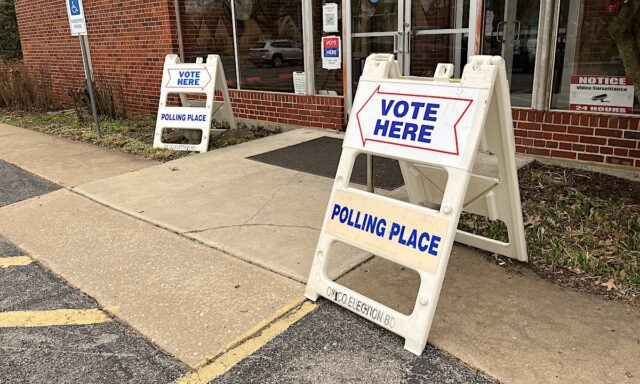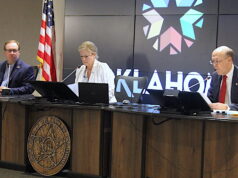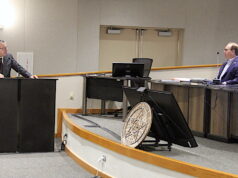In last week’s Oklahoma runoff elections, the official winners of some contests remain unknown. A recount is scheduled to begin Thursday in Cleveland and McClain counties to determine the winner of the Republican runoff for the House District 20 post and the Senate District 15 seat. A judge in Tulsa on the same day will decide whether a recount request in the city’s mayoral race should move forward.
In addition, five state legislators from Lawton are asking the Oklahoma State Election Board to look into allegations that some Democrats received ballots for the Aug. 27 Republican sheriff runoff in Comanche County. The local district attorney has asked for a new election, saying he has “little confidence” in the runoff results.
In non-election items, Oklahoma Natural Gas customers may be noticing an increase in their monthly bills, and 53 state agency directors received raises during the past fiscal year. Meanwhile, residents in Del City fell short in their petition to empanel a grand jury to investigate an Oklahoma County commissioner, but they are not giving up in their request for an investigation into claims he is backing the county’s proposed site for a new jail as a favor to a friend and campaign donor. Further south, a county treasurer has been indicted for embezzlement.
Election recounts eyed for HD 20, SD 15, Comanche County sheriff and Tulsa mayor
A recount has been ordered in last week’s House District 20 Republican runoff, where Mike Whaley lost by a razor-thin five votes out of 3,341 ballots cast.
The recount is set to take place Thursday in both Cleveland and McClain counties, according to an order issued by Oklahoma Election Board Secretary Paul Ziriax.
The Cleveland County Election Board is set to hold a recount of its HD 20 ballots at 8:30 a.m. Thursday before District Court Judge Thad Balkman. The McClain County Election Board is set to hold a recount at 9 a.m. Thursday before District Court Judge Leah Edwards in the McClain County Courthouse.
Whaley requested the recount and asked that the ballots be recounted manually. He paid $1,500 for the recount, which is based on a statutory requirement of $600 for each 3,000 ballots (or fraction thereof) for each county affected.
A retired teacher and coach, Whaley lost to former first responder and fire investigator Jonathan Wilk, according to the unofficial Aug. 27 GOP runoff election results, for the open seat just south of the Oklahoma City metro area.
After the runoff, seven provisional ballots were counted — six in McClain County and one in Cleveland County. On Election Night, Wilk finished ahead of Whaley by two votes. After provisional ballots were counted, the spread between the two candidates increased to five votes, with Wilk receiving 1,673 votes (50.07 percent) and Whaley receiving 1,668 votes (49.93 percent).
The winner, as determined after the recount, will face Democrat Mitchell Jacob in the Nov. 5 general election.
Covering some of the same area, Senate District 15 saw a close GOP runoff, with Lisa Standridge finishing 51 votes ahead of Robert Keyes, who filed paperwork for a recount by Friday’s deadline. Standridge and Keyes had a hard-fought Republican runoff for the right to face Democrat Elizabeth Foreman in November for the open SD 15 seat, which circles the core of Norman.
In Lawton, Comanche County District Attorney Kyel Cabelka cited five instances where irregular votes were cast in multiple voter precincts to file an Aug. 30 petition requesting that the state deny certification of the Aug. 27 Comanche County sheriff runoff results. Cabelka asked that Gov. Kevin Stitt order a new election.
Cabelka’s petition was filed one day after five Oklahoma lawmakers from Lawton sent a letter to Ziriax requesting a formal investigative audit after a report of improper ballot distribution was submitted to the Comanche County Election Board.
On Aug. 29, an anonymous Democratic voter in Comanche County told KSWO that he was given two ballots on Election Day, one of which included the Republican sheriff runoff election. Not realizing the mistake until after his ballot was cast, the man called the Comanche County Election Board to notify officials.
Since then, more Democratic voters have reported being given a ballot for the Republican sheriff’s race.
“That news story caused me to look further into the results of the runoff election,” Cabelka said in a statement. “Based on what I have observed by conduct from local election officials that were at the precincts on Aug. 27, the confusion from the Comanche County Election Board secretary, and the conversations that I have had with representatives from the State Election Board, I now question the integrity of the runoff election as well as have little confidence in the election results.”
Comanche County Election Board Secretary Amy Sims told NonDoc that Cabelka instructed her to not speak to media because the situation is pending. A spokeswoman for the State Election Board said Tuesday she had no additional information about the Comanche County runoff election.
Cabelka stated in his petition that he had discussed the issue with Comanche County Election Board representatives.
“Due to this discrepancy, petitioner once again voiced his concerns with his lack of confidence in the Comanche County Election Board’s ability to certify this election,” Cabelka wrote. “Election Board representatives stated that ‘[irregularities] happen all the time, humans make mistakes.’ One State Election Board representative stated that ‘We’re only talking about a few votes here, it won’t change anything.’”
Results from the Aug. 27 runoff showed Michael Merritt winning by 628 votes. He received 3,595 votes (54.79 percent) to defeat opponent Andy Moon, who received 2,967 votes (45.21 percent).
A Democrat, David Stroud, awaits in the Nov. 5 general election.
In Tulsa, Brent VanNorman, the third-place finisher and leading Republican candidate in Tulsa’s mayoral election, filed for a recount Aug. 30. While Tulsa’s municipal races are officially nonpartisan, VanNorman ran an explicitly partisan campaign that appeared to coalesce many Tulsa conservatives into a strong base of supporters.
Results show VanNorman finished 436 votes behind Tulsa County Commissioner Karen Keith, who finished second to advance to a runoff with Rep. Monroe Nichols (D-Tulsa). Nichols finished first with 18,763 votes (33.12 percent). Keith received 18,471 votes (32.6 percent) to edge out VanNorman, who finished with 18,035 votes (31.84 percent).
A hearing is scheduled for 9 a.m. Thursday in Tulsa County District Court. If a judge rules the recount can proceed, Tulsa County Election Board workers plan to accompany the ballots from the board’s current location to its future location, according to a press release. The future site of the Tulsa County Election Board, 12000 E. Skelly Drive, is able to accommodate the number of people required to conduct a recount, which officials said will be open to the public and will likely last multiple days.
“This is not only the largest recount conducted by Tulsa County but also one of the largest in the state of Oklahoma,” said Tulsa County Election Board Secretary Gwen Freeman.
Court records show VanNorman paid $12,000 for the recount of ballots in Tulsa County, and his request explicitly excluded City of Tulsa precincts in Wagoner and Rogers counties.
Del City grand jury request falls short
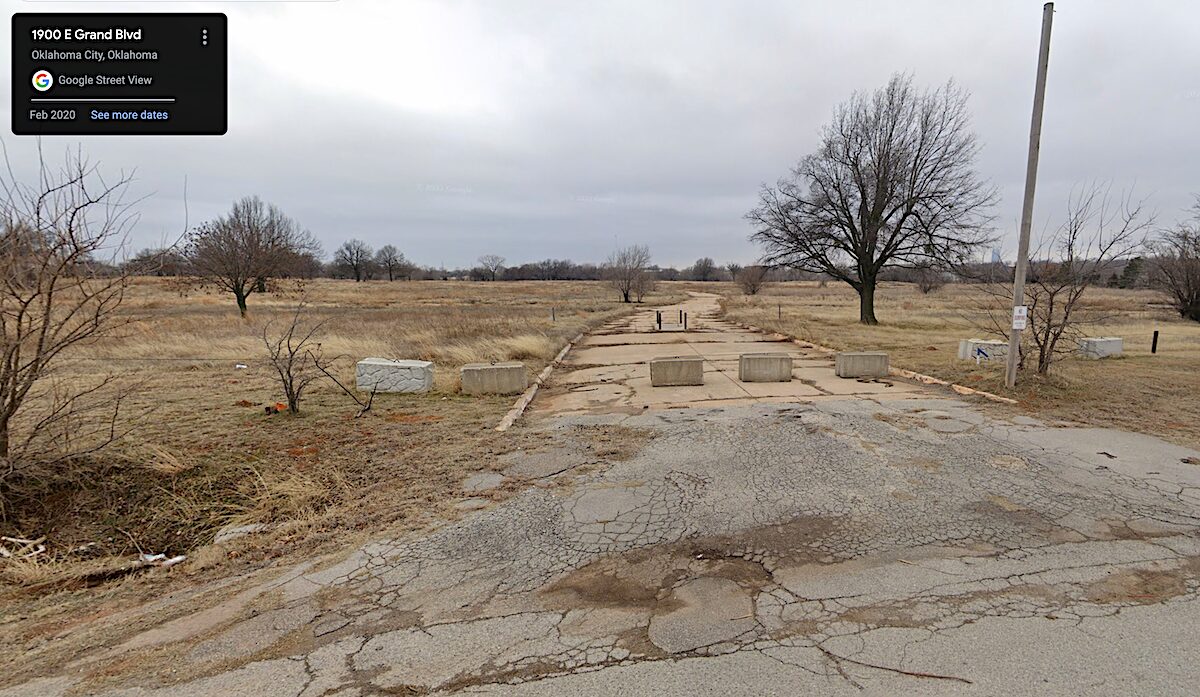
An effort by leaders in Del City to trigger a grand jury investigation into Oklahoma County Commissioner Myles Davidson has fallen short of the required signatures. Still, those requesting an inquiry aren’t backing down.
About 5,700 signatures were turned into the Oklahoma County Election Board, but only about 4,180 were found to be valid. Mayor Floyd Eason, Rep. Andy Fugate (D-OKC) and Midwest City-Del City Public Schools board member Gina Standridge led the petition drive, which needed to submit 5,000 valid voter signatures to empanel a grand jury.
Now those officials are requesting that Oklahoma Attorney General Gentner Drummond launch a grand jury investigation into Davidson. In an Aug. 28 letter, Eason, Standridge and Del City Councilman Scott Tatum said time constraints prevented them from getting the required signatures.
“Since the petition fell short of the required signatures due to time constraints, to wit, the petition approval was not physically given to the petitioners until several days after the district court’s approval, petitioners believe that more than the required 5,000 signatures could have been obtained given more time,” the officials wrote.
Finding and getting approval for a new jail site has been a struggle for the past year. Ultimately, Oklahoma County commissioners chose a site at 1901 E. Grand Blvd. close to the Del City city limits. While the county purchased the property on June 10, throughout numerous public meetings, residents have spoken out against the site because of its proximity to homes and a school in the area.
Del City residents have accused Davidson of favoritism during the site-selection process, alleging he voted for the 1901 E. Grand site because it was owned by a business associate and campaign contributor. Davidson has denied he was influenced by outside parties to select the site.
The new county jail was overwhelmingly approved by voters in 2022, although the project’s anticipated cost has doubled from the initial $300 million estimate touted when it was sold to voters.
Corporation Commission approves $31 million ONG rate hike
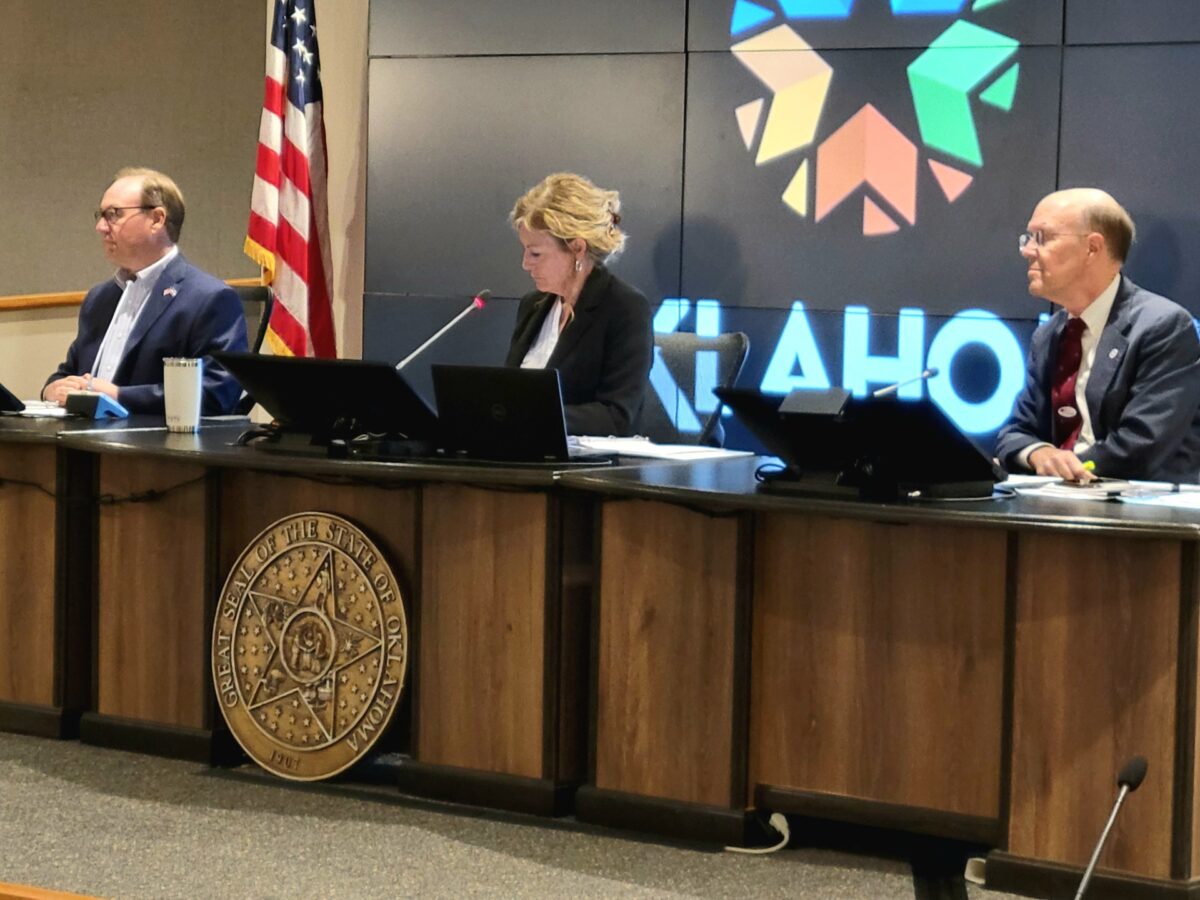
Oklahoma Natural Gas customers can expect the monthly increase that appeared on their bills earlier this summer to continue now that state regulators given their formal approval.
The Corporation Commission voted 2-1 on Aug. 27 to approve a $31.4 million rate increase in ONG’s “performance-based rate.” The PRR filing is an annual process in which ONG identifies investments in infrastructure and operating expenses that help the utility “continue safe and reliable delivery of natural gas,” according to ONG.
The filing called for a monthly increase of $1.33 for the average residential customer. The monthly impact for an average low-income residential customer is 48 cents. Those rates went into effect June 28 for ONG’s more than 918,000 customers across Oklahoma.
“It’s important to point out that customer bills are expected to be less in 2024 than in 2023, even with this filing,” said Safeena Walji, a public relations manager with One Gas, the parent company of ONG. “The average residential customer will save $107 or 10 percent, while the average low-income customer will save $126 or 20 percent. The cost of natural gas has been reduced from 2023, which is a main factor for the decrease.”
Commissioners Kim David and Todd Hiett voted for the increase, but Commissioner Bob Anthony voted against it.
“I do not believe this proceeding has fully complied with state law, including (state) ethics rules,” Anthony said before voting. “I do not support a final order at this time.”
During a hearing Aug. 20, Tom Schroedter, executive director of the Oklahoma Industrial Energy Consumers, raised concerns that customers are possibly being double billed to cover the utility’s costs.
On Aug. 23, Anthony filed a deliberations statement in ONG’s $527 million rate, writing he denounced what he called the “appearance of impropriety regarding ONG’s rate change.”
“With $1 billion or more of rates and charges at issue for ONG, the Oklahoma Corporation Commission faces a troubling ‘appearance of impropriety’ in this and related matters.” Anthony wrote.
He was referring to allegations of “commissioner misconduct — some reportedly involving attorneys who appear before the OCC” that “have not been denied by the accused commissioner.”
The allegations involve Hiett, who allegedly got blackout drunk and groped an energy industry employee at a conference in Minneapolis in June. Hiett, who stepped down as chairman of the commission Aug. 7, has said he cannot recall the Minneapolis incident and that he is seeking treatment for abuse of alcohol.
Anthony has called on Hiett to resign from the Corporation Commission.
The OCC has hired the law firm Riggs Abney to conduct an investigation into Hiett’s behavior and alleged misconduct. That decision came after initial uncertainty about the investigative intentions of the Attorney General’s Office regarding allegations that Hiett has previously engaged in behavior similar to that reported from the Minnesota conference.
On Aug. 19, Hiett filed a document with the Oklahoma Supreme Court claiming Anthony is “exerting powers” not granted to him by the Oklahoma Constitution in an effort to influence the inquiry into his conduct.
Hiett has asked the high court to grant a writ of prohibition against Anthony to keep him from acting outside his constitutional authority as a commissioner and from engaging “in efforts to trample” Hiett’s rights. The court has given Anthony until Sept. 9 to respond to Hiett’s filing.
Report: 53 state agency directors received raises in FY 2024
An annual report on Oklahoma state agency executive salary increases during Fiscal Year 2024 shows that six state agency directors received a salary increase higher than what the average Oklahoman earns in a year.
The two largest increases went to the directors who lead Oklahoma’s transportation entities. Raises during the past fiscal year, which ended June 30, ranged from $1,682 for Oklahoma Mental Health and Substance Abuse Services Commissioner Allie Friesen, who was appointed to the post by the governor in February, to $60,000 for Department of Transportation executive director Tim Gatz, who at the time headed both ODOT and the Oklahoma Turnpike Authority as well as serving as an adviser on the governor’s Cabinet.
The average salary in Oklahoma for 2024 is $41,668, according to Talent.com.
The report shows that 53 agency directors received raises ranging from 0.97 percent (Friesen’s) to 43.81 percent for Office of Education Quality and Accountability executive director Megan Oftedal, who was hired in August 2023 at a salary of $151,000, up from $105,000.
The Office of Management and Enterprise Services is required by state law to report agency director salary increases by Sept. 1 to the governor, the Senate president pro tempore and the speaker of the House of Representatives. Agencies are required to report the salary increases, which can be implemented for the current fiscal year and subsequent fiscal years, to OMES by Aug. 1 of each year.
A similar report for FY 2023 released last year also included salary increases for the first quarter of FY 2024, which makes direct comparison between the two fiscal years awkward. Last year’s report showed 49 agency directors getting a salary increase for FY 2023, with 14 of those raises taking effect July 1 or later, which is in the 2024 fiscal year. Take away those raises, and only 35 directors received pay raises in the 2023 fiscal year.
Similarly, the 14 directors who received raises in the first quarter of the 2024 fiscal year are included among the 53 listed in the FY 2024 report.
Altogether, the 53 annual raises amounted to $1,061,4584, with the average raise totaling $20,028, or about half of what the average Oklahoman is earning in 2024.
In January, the Oklahoma Transportation Commission recommended a 30 percent increase for Gatz, who then served as the executive director of the Department of Transportation, executive director of the Oklahoma Turnpike Authority and on the governor’s Cabinet as secretary of transportation. Gatz, who has worked for ODOT for 34 years, saw his annual salary increase from $185,000 to $245,000. In late February, Gatz resigned as executive director of OTA and from the Cabinet after Attorney General Gentner Drummond issued an opinion that one person cannot serve as the head of two state road-building agencies and as secretary of transportation. Gatz retained his salary, and he eventually became Stitt’s chief adviser on transportation, with the chief advisors taking the place of the governor’s Cabinet in a battle of semantics.
With the head spot at OTA vacant, authority board members voted in March to name deputy director Joe Echelle as OTA’s executive director. His annual salary climbed from $185,000 to $240,000 for a 29.73 percent increase, according to the report.
The highest paid state director to receive a pay raise during the 2024 fiscal year was Chief Medical Examiner Dr. Eric Pfeifer, who received a $35,000 raise, or a 10.94 percent increase, raising his annual salary from $320,000 to $355,000, according to the report.
Texas bitcoin mining facility blamed for making residents sick

Is it a case of be careful what you ask for?
A slew of strange ailments struck a small town in Texas with reports of hearing loss, fainting spells and debilitating vertigo, according to a recent feature story in TiME magazine. At a town hall meeting, Granbury residents expressed confusion over the cause of their sudden symptoms and concerns about a constant hum they’ve heard in their homes. Local law enforcement attributed the hum to a new Bitcoin mining facility, which daily exceeded noise ordinances, according to the magazine.
Oklahoma almost welcomed a Bitcoin mine of its own. In March 2022, Gov. Kevin Stitt announced that German tech company Northern Data would build its North American headquarters in Pryor. Within 24 months, the 100-acre facility set out to establish 150 jobs and an office at the MidAmerica Industrial Park, which also houses a large Google data center and is widely viewed as Oklahoma’s most attractive industrial footprint.
“Our campus design is going beyond mining, extending to cloud services and even establishing a research lab dedicated to the discovery of future data processing applications,” Northern Data CEO Aroosh Thillainathan said in a 2022 press release. “In short, this new alliance promises to be mutually beneficial to both Northern Data and its strategic partners in Oklahoma for years to come.”
But 24 months have come and gone since the announcement, and Pryor residents are able to sleep without worrying about the hum of Bitcoin mining that is making national headlines in Granbury, just southwest of Fort Worth.
“Northern Data put that project on hold indefinitely, probably two years ago,” director of business development at MidAmerica Sherry Alexander told NonDoc. “They have never built; we are not engaged with them. They put it on hold indefinitely and we haven’t heard back.”
Alexander said Northern Data did not disclose a reason for axing its plans for a North American headquarters in Oklahoma.
“We have no agreements with them. They were working on contracts, but nothing was ever finalized,” Alexander said.
Instead of opening a new North American site, former executives of Northern Data have accused Thillainathan and Northern Data’s chief operating officer, Rosanne Kincaid-Smith, of fraud and tax evasion, according to the Financial Times.
Love County official indicted
Love County Treasurer Lory Hull, 45, has been indicted by the state’s multi-county grand jury on seven counts of embezzlement by a county treasurer. She is accused of stealing about $21,500 from the county coffers over three months in 2020.
“This case is all the more troubling because the alleged embezzlement was at the hands of an elected official responsible for the safekeeping of taxpayer dollars,” Oklahoma Attorney General Gentner Drummond said in a press release. “My office will zealously seek justice for the residents of Love County.”
If convicted, Hull faces up to 10 years on each count.
O’Neal named new administrative director of Oklahoma courts
With former Lt. Gov. Jari Askins retiring as Oklahoma’s administrative director of the courts in June, Supreme Court Chief Justice M. John Kane IV announced Tuesday that acting director Diana O’Neal has been selected to succeed her.
A certified public accountant who graduated from Southwestern Oklahoma State University in Weatherford, O’Neal has worked for more than 25 years in state government, according to a press release.
“Diana has a proven track record of strong financial management and professional leadership she brings to the courts,” Kane said. “In her role as our chief financial officer, she led initiatives to modernize our administrative operations and she continues to foster a culture of teamwork throughout the AOC. Diana has earned the respect of the justices and her team with her competence and integrity, making her a perfect fit as administrative director of the courts.”
O’Neal had most recently worked as deputy administrator and chief financial officer for the Employees Group Insurance Division of the Office of Management and Enterprise Services.
“I grew up in the Oklahoma panhandle with a family that had great passion for the state of Oklahoma and service to our citizens,” Ms. O’Neal said. “I am grateful for the opportunity to continue serving our state in this new role as the AOC works to support and assist the Oklahoma judicial branch. I am also thankful to have spent the last few years learning the court system administration under the mentorship of Ms. Askins.”
(Update: This article was updated at 10:15 a.m. Wednesday, Sept. 4, to include information about the election recount set for Senate District 15.)









